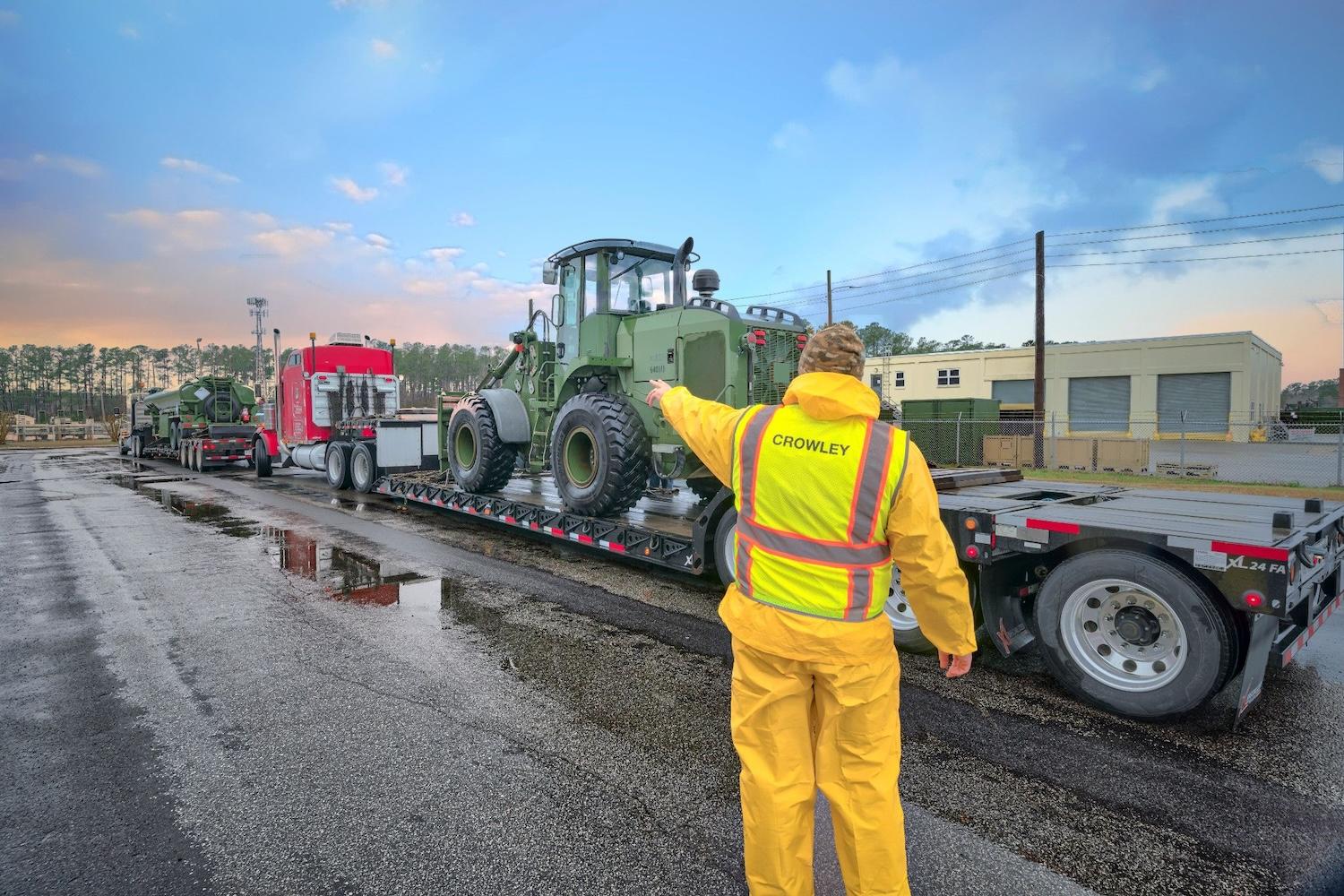
Too often, the owners of small and medium-sized businesses struggle to find the financial and professional support they need to build their place in the mainstream. Business owners from underrepresented backgrounds — including women, people of color and military veterans — tend to face even more of an uphill climb.
Among other challenges, women entrepreneurs, entrepreneurs of color, and veteran entrepreneurs are less likely to connect with the mentorship and business networks that could help their businesses grow.
Access to large, dependable vendors with consistent business needs is critical to allow these entrepreneurs and their businesses to succeed. Committed to make that happen is Crowley, a supply chain logistics company committed to purchasing more goods from diverse small businesses.
Driving investments and opening new networks to diverse small businesses
Crowley partners with entrepreneurs through its small business program, which concentrates on forging connections between traditionally underserved entrepreneurs — such as veterans, women, people of color and those from marginalized communities —with new buyers to help them expand their businesses. It also provides one-on-one services to small businesses owned by traditionally underserved entrepreneurs.
The company reported it has invested $630 million with small businesses across the nation from mid-2018 to mid-February 2024, including over $206 million for veteran-owned businesses, over $197 million for women-owned businesses, and nearly $190 million for businesses owned by traditionally disadvantaged and underrepresented groups.
The Small Business Program is an example of the private sector’s broader goal of diversifying larger companies' supply chains and boosting emerging businesses.
Crowley’s assistance to underrepresented companies includes not just providing brokerage services, but also opening up a network of development support and recruiting to help build their resources, said Jessica Baczkowski, small business administrator for Crowley Solutions.
“The more diverse suppliers we have in our network, the more dependable our supply chain becomes,” Baczkowski said. “We exceed our contractually obligated goals for small and diverse usage by almost 40 percent. We also know that a database must be maintained of these suppliers so we can do more.”
The company named Baczkowski to be small business support administrator to increase its creation of these connections between Crowley and small businesses looking to grow. “This work also supports our overall corporate procurement goal of spending 27 percent on small businesses, which is a sustainability goal that the company has committed to seeking to support a more inclusive and diverse supplier pool,” she said.
Government contracts create new opportunities for some small business owners
Crowley utilizes several resources to connect with suppliers, including the National Veteran Small Business Coalition, the HUBZone Contractors National Council and the National Minority Supplier Development Council.
It also utilizes SAM.gov and the U.S. Small Business Administration, and it maintains a strong relationship with the U.S. government-backed APEX Accelerators program to source specific suppliers within a region. APEX Accelerators, formerly known as the Procurement Technical Assistance Program (PTAP), was authorized by the U.S. Congress in 1985 to expand the number of businesses capable of participating in government contracts, Baczkowski said.
In this mutually beneficial relationship, Crowley refers its suppliers to the appropriate APEX office for further education on growing their businesses with local, state and federal contracts. The company also provides guidance on certifying suppliers that did not know they could qualify as a small and/or diverse supplier.
Crowley’s efforts extend to its Defense Freight Transportation Services (DFTS) program under the largest freight transportation services contract for the U.S. federal government.
The DFTS program supports government customers from initial shipment requests to in-transit shipment management through final payment and delivery of freight of all kinds. The program provides the transportation of military, health and emergency relief cargo across the U.S.. The company also has contracts to provide disaster relief under other contracts.
Particularly, Crowley facilitates contracts for small businesses with the U.S. Department of Defense and other agencies. As the prime contractor, Crowley then brings in small business subcontractors to provide supporting logistics, transportation and tech services for federal agencies.
Crowley grew its DFTS network of suppliers by more than 500 percent between 2018 and 2023, more than three times the capacity needed to effectively service 300,000 movements annually across maritime shipping lanes.
Its network now includes more than 1,800 subcontractors. And in October 2023, Crowley received the Champions Award for surpassing its DFTS contract goals for service-disabled veteran owned and veteran-owned small businesses by the National Veteran Small Business Coalition.
Helping small businesses in the shipping sector scale up can build supply chain resilience and combat climate change
The payoff is big for participants. Crowley has seen multiple transportation suppliers expand warehouses, hire additional employees and purchase more equipment just to support the DFTS contract.
“As a large prime contract holder for the United States Transportation Command … it is our moral and ethical responsibility to mentor and guide underrepresented groups, especially those that are interested in government contracts of their own,” said David Touzinsky, general manager and director for DFTS services at Crowley. “And we can’t do it alone. It takes multiple suppliers to support any government contract, and we take our commitment to small and diverse suppliers seriously.”
One of those companies — Wright Xpress, a family-owned interstate freight carrier based in New Cumberland, Pennsylvania — has worked with Crowley in supporting the DFTS contract since 2019. Wright Xpress’ commitment started with one truck and quickly grew to 54 trucks with drivers, despite some downturns in the economy and rising fuel prices, Baczkowski said.
“We began conservatively, and then started adding more trucks and capacity,” Charlie Wright, who runs the company with his wife Pam, told Crowley for a recent blog. “As Crowley grew confident in me, they gave us more and more work,” he continued. “We have a true partnership. I helped them, and they helped me.”
Besides helping these smaller businesses succeed, Crowley’s involvement contributes to its decarbonization efforts. “Supporting diverse suppliers increases the resilience of the supply chain and decreases the risk of business interruption, while opening more avenues for innovation and ideas,” Baczkowski said. “As a leader in our industry, we are poised to assist diverse suppliers by providing tools, training and resources for taking climate action. This includes providing support to our suppliers in understanding and measuring their carbon footprint, setting emissions reduction goals, and providing incentives and/or recognition for climate performance.”
Shannon Sarkees, Crowley’s director of sustainability, agrees. “Engaging suppliers to take climate action is a critical component of supply chain decarbonization,” she said.
With so many mutual benefits, Touzinksy urges other companies to diversify their supply chains, too. “Do it. You have nothing to lose and everything to gain,” he said. “In a time when we are seeing a crunch in specific areas of the supply chain, we need everyone involved. Plus, you get to be a part of small and diverse companies’ growth. It is so rewarding.”
This article series is sponsored by Crowley and produced by the TriplePundit editorial team.
Image courtesy of Crowley

Ellen R. Delisio is a writer who lives in Long Island, NY. Over the past 30 years, her writing has focused on life science, sustainability, education issues and electric vehicles. Ellen is an avid reader and beach-goer.














